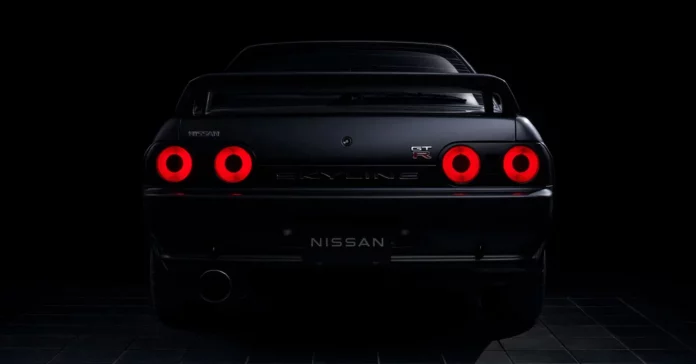Nissan is giving the British government a lift as it attempts to resuscitate the nation’s faltering economy by investing $1.4 billion to modernise its factory in northeast England so that it can produce electrified versions of its two best-selling cars.
Nissan Motor Company announced that it will directly invest up to 1.12 billion pounds ($1.4 billion) in the development of the two models’ electric successors. According to a separate press release from the government, the funds would also allow for “wider investment in infrastructure projects and the supply chain, including a new gigafactory” for EV batteries at the location.
Prime Minister Rishi Sunak stated, “Nissan’s investment is a massive vote of confidence in the U.K.’s automotive industry,” which boosts the country’s GDP by 71 billion pounds annually. For the announcement, Sunak went to the factory, where he met employees and took a tour from plant personnel. He also posed for pictures with Treasury Chief Jeremy Hunt in front of a blue Qashqai on the production line.
Prior to next year’s national election, Hunt proposed tax cuts and other budget goals the day before. This comes at a time when the UK’s economy is struggling and consumers are being squeezed by persistently rising inflation. This year, the Qashqai is the second most popular car in the UK, and the Juke is ranked seventh. Additionally, Nissan said that it will produce the upcoming model of its venerable Leaf electric vehicle in-house.
In 2021, the firm announced its intention to construct an electric vehicle at the facility, in addition to batteries supplied by AESC, a supplier owned by Envision in China, next door. With Friday’s announcement, AESC’s portfolio of gigafactories in Sunderland now stands at three.

Nissan’s view on EV
Nissan President and CEO Makoto Uchida stated in a statement that EVs are “at the heart of our plans to achieve carbon neutrality.” “We are moving closer to a new era for Nissan, the industry, and our customers with the arrival of electric versions of our core European models.”
By 2030, Nissan wants all of its passenger cars in Europe to be electric. “We are bringing that vision to life with today’s announcement,” Uchida declared at the plant, which momentarily halted operations for the event. There have been concerns about Nissan’s Sunderland both before and after Britain voted to exit the European Union in 2016. Brexit opponents contended that tariffs on exports to the EU by businesses like Nissan would hurt Britain’s economy if the country left the bloc without a trade agreement.
The car sector is ready for the 10% post-Brexit trade tariffs that will go into place in January. By punishing manufacturers in their individual markets for getting insufficient amounts of their components from the EU or Britain, they threaten to increase the price of new electric vehicles.
Due to Europe’s inferior battery output compared to Asia, many EV manufacturers will find it difficult to achieve the need. On the other hand, Nissan is the only automaker in the UK with a close dedicated battery facility.
Nissan is now producing electric vehicles in the United Kingdom alongside other automakers, despite Sunak delaying the deadline to stop selling new petrol and diesel vehicles by five years, until 2035.
In order to begin producing electric vehicles by 2026, BMW said earlier this year that it is investing 600 million pounds into its Mini factory in Oxford, England. The 4 billion-pound EV battery factory being built in the United Kingdom by India’s Tata Sons, the company that owns Jaguar Land Rover, is anticipated to manufacture roughly 40 gigawatt hours of battery cells annually, which is sufficient to supply half of the country’s needs for batteries for electric vehicles. Northwest England will see the production of electric vehicles and vans thanks to a 100 million pound investment by Stellantis, the parent company of British manufacturer Vauxhall.


